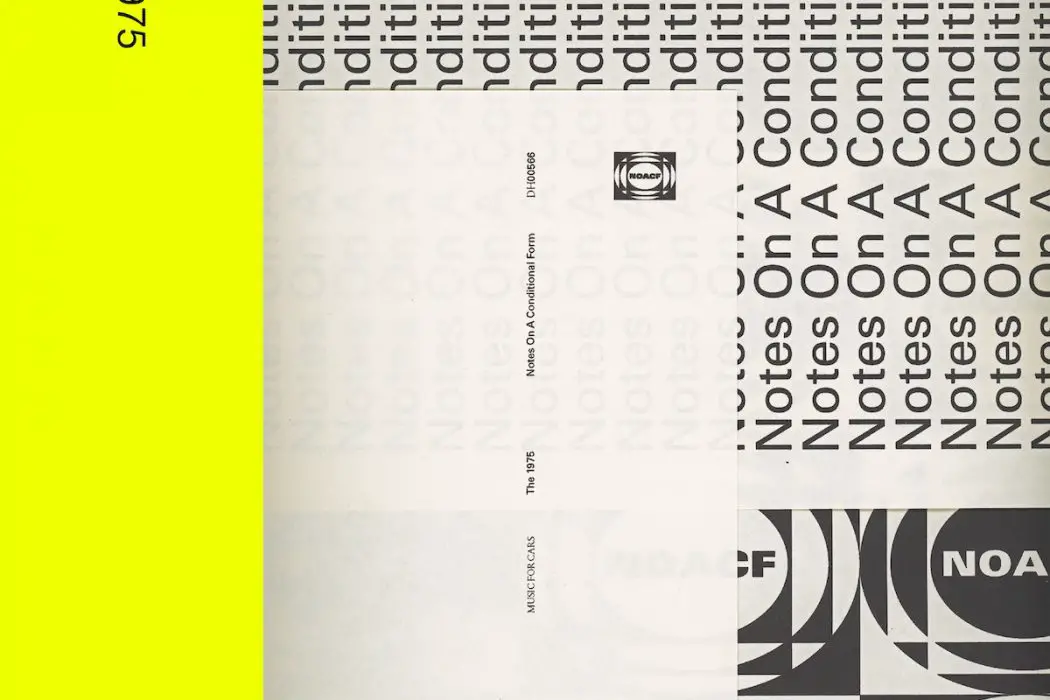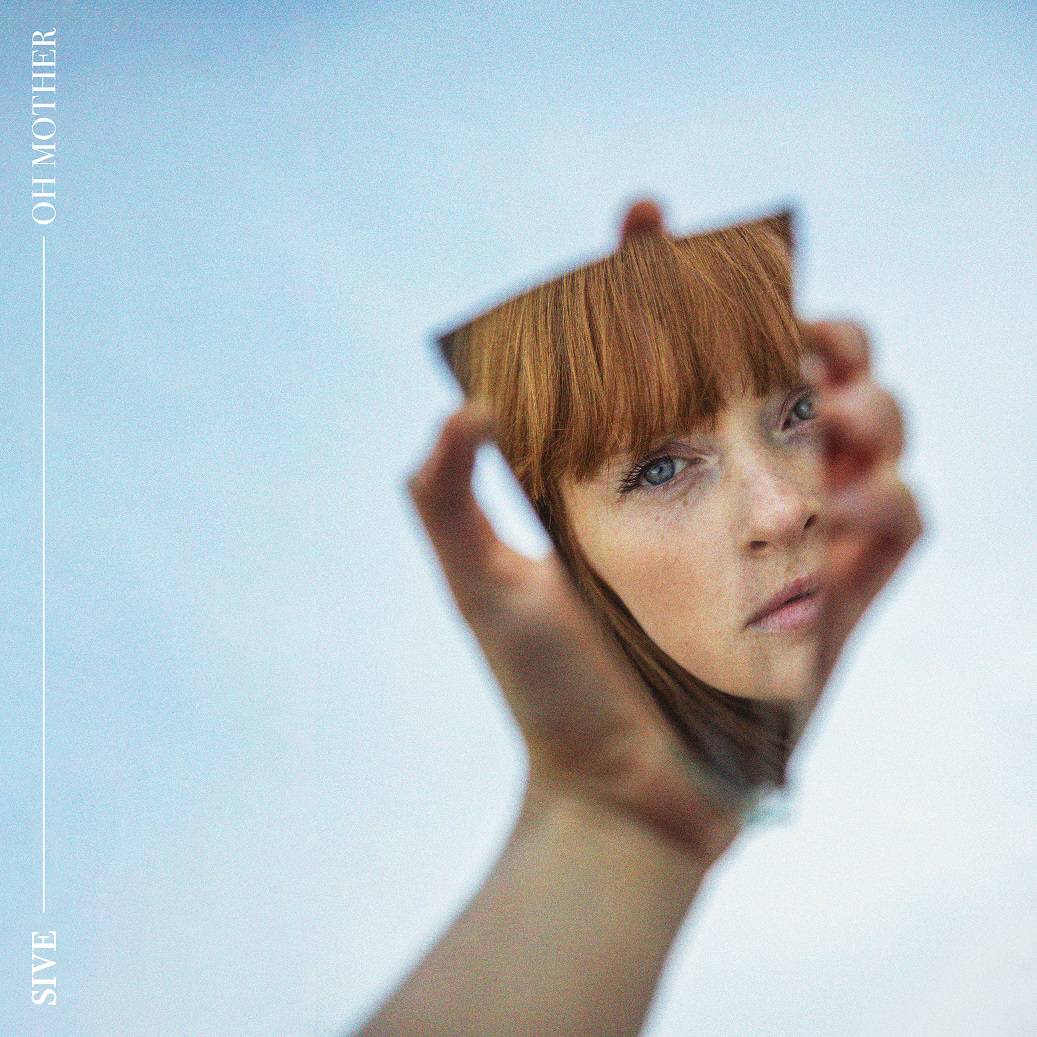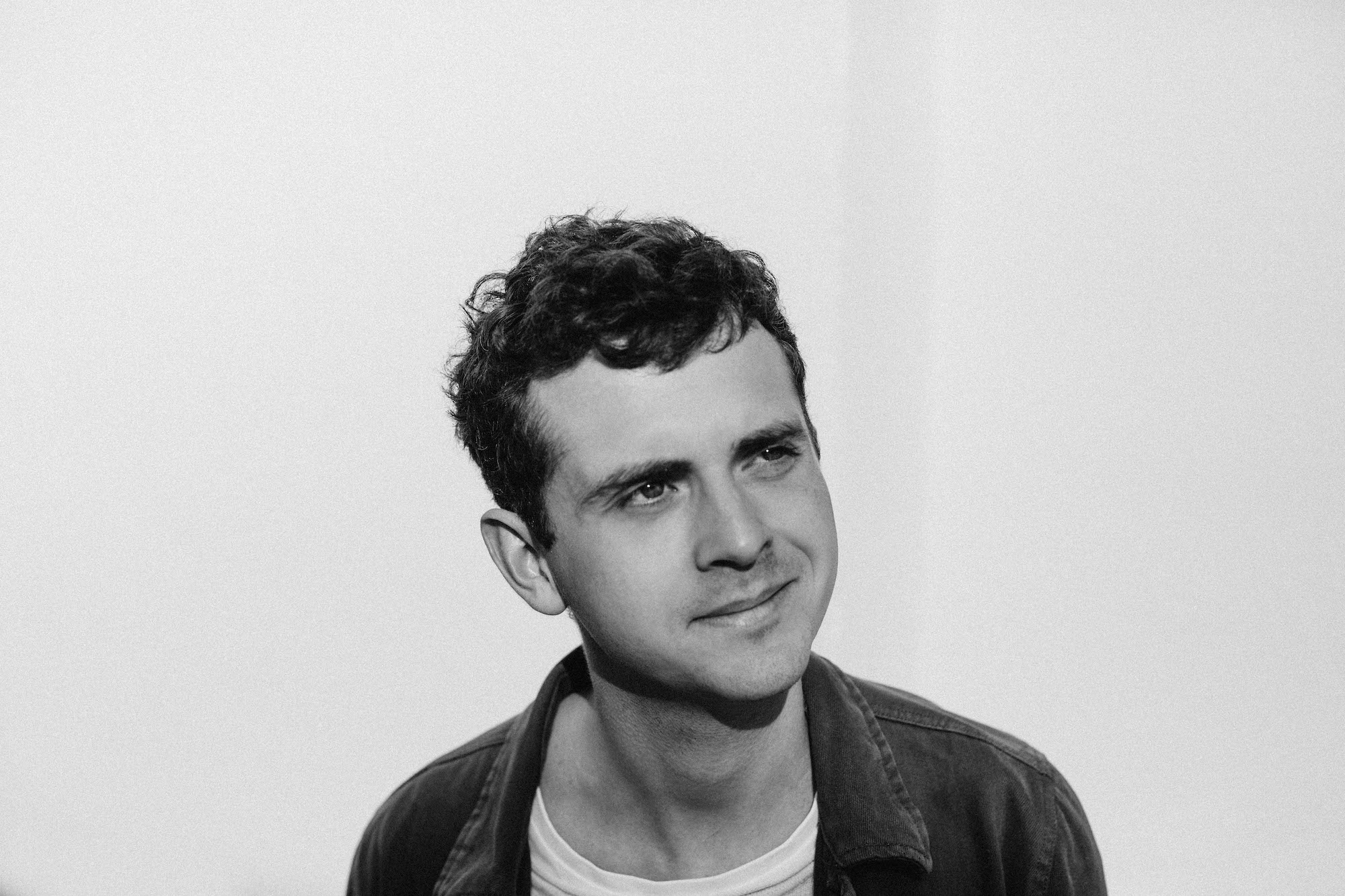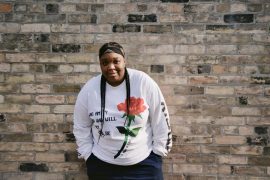Atwood Magazine’s writers discuss the breadth and depth, scope and span of The 1975’s supposed “swan song”: Their long-awaited fourth album, ‘Notes on a Conditional Form’.
Featured here are Atwood writers Lexi Lane, Mitch Mosk, Matthew Dunn, Maggie McHale, Erica Garcia, Ben Niesen, and Nina Schaarschmidt.
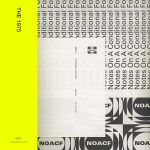
— —
To start, what is your relationship with The 1975, and what are your immediate reactions to Notes on a Conditional Form (NOACF)?
Mitch: I don’t know how and I don’t know why, but “Chocolate” somehow became the soundtrack to my final semester of college back in spring 2014, and the rest is history. I had the pleasure of interviewing Matty Healy and George Daniel later that same year, and I think it was that in-person interaction that solidified not only my passion for the band’s music, but also my respect for its individual members. People often forget that The 1975 were together for a decade before they released their very first record; I can only name a handful of artists who spent that much time growing, developing, cultivating their sound, and finding their niche before releasing their debut. This origin story sets the groundwork for an artistry that, in my mind, has continuously challenged itself and thought outside the box, without ever apologizing for being true to itself every step of the way.
For me, The 1975 are the needle in the haystack. They’re trailblazers – not “one-of-a-kind” in a corny, cliché sense, but rather singular in their ambition, in their identity, and increasingly, in their scope of sound and subject matter. I have embraced and immersed myself in every album, each of which has its own distinct flavor profile – a palette of songs that speak to the time, and to who these artists were. Songs like “Chocolate,” “The City” (especially!), “Sex” and “Girls” remind me of the fresh beginnings that come with university’s end. I like it when you sleep…, meanwhile, is a soothing, intimate upheaval – I used listened to it on vinyl as I fell asleep, every night, for months following its release. Meanwhile, A Brief Inquiry into Online Relationships, a still relatively young album, brings me back to some of the most tumultuous moments in my young adulthood – it speaks so much to social unrest and anxieties about what’s going on around the world, and yet it also has such sublime anthems in “TOOTIME…” and “It’s Not Living (If It’s Not With You)” that seem to tune out the world, and focus on what’s going on within. This all isn’t to say that I’m a super fan or that I necessarily love every song, but sometime earlier this year I came to the definitive realization that The 1975 are my favorite band, and that’s the state of mind I was in when I first heard Notes on a Conditional Form.
What I will say is that The 1975 are still my favorite band; I think this album is an ambitious odyssey of both sound and substance, but I know it’s not for everybody and it’s a lot to take in all at once. I think this finds The 1975 doing what they do best – challenging us to think deeper and more critically, both about ourselves and our surroundings – while they themselves push their own artistry beyond whatever came before. I used to be under the impression that NOACF was supposed to be The 1975’s last album – probably because that was what Matty Healy told journalists back in the day – but after hearing the final song “Boys,” I know there’s still much more to come. That said, if this was the band’s last album, they’d be going out on top with what I believe to be a vast, sweeping expression of life, emotion, and musical experience in 2019-2020.
Lexi: I started listening to them when I was 13, basically when they were becoming a staple on Tumblr. It’s been a really interesting experience, especially seeing critics really starting to embrace them with NOACF, after writing the band off for years in a way. I also feel that other female artists and groups who started on the same platform at the same time have yet to generate the same critical respect. As for NOACF, I did enjoy the record. It felt reminiscent of their older sound, mixed with a new energy. However, I’ll always be super nostalgic for their first few releases during my teenage years.
Matt: When their debut, self-titled LP came out I wasn’t quite sure how to feel about it. The radio hits such as Chocolate and Robbers circulated my favorite stations frequently enough that my interest piqued; though it was not until I heard their track Menswear that something truly clicked. Healy’s brief, but effective verse over the glistening production stuck in my head for weeks. After having that “I get it” moment, I have found myself enjoying the group more and more with every release.
Maggie: The 1975 have been my favorite band for nearly 6 years. I discovered them in college, shortly after the first album came out, and was immediately enamored with them and their music. When I first heard NOACF, it only further solidified my belief that they are the greatest band of the modern age. The record is smart, thoughtful, emotional; all of the things that make The 1975 so special. NOACF beautifully combines elements from every genre, without feeling terribly cluttered. It’s a win.
Erica: I’ve been following The 1975 for a long time – dating back to around 2014 when they were playing small theaters in Los Angeles, and not only are they a great band live and have been able to sustain that all these years, I think that the way they’ve grown in their music and experimentation of it is also really evident when you’ve been following a band for this long. NOACF is a pretty eclectic album that I think takes a turn for a wild emotional ride and is also just the latest installment in the band’s musical journey. I had fun with this record and was able to see the band pull from each era of their music on this album.
Lowndes: I first heard “Chocolate” my freshman year of college in the backseat of my friend’s maroon Ford Explorer, and since then The 1975’s songs have soundtracked vivid memories: riding shotgun as my younger brother learned to drive, skateboarding down a dead-end street with neighborhood strangers turned friends, a springtime road trip to Texas. While my first listen of NOACF doesn’t have a memory like that attached to it, I noticed the way the band leaned into experimenting with each track. It felt mature, loud, and attentive, while still retaining a sense of youthfulness.
Ben: My relationship with the 1975 is one which breeds loyalty to any band or album: a break-up. Whatever feelings left over needed something to smolder; that thing was I like it when you sleep for you are so beautiful yet so unaware of it, a long-player which resonates even now as it did then. In Matty Healy wwas an anthem rock lead singer just as mercurial and self-aware as I. A rock star simpatico with my own self-doubts and worries. That’s quite rare. To this day, “Ballad of Me & My Brain” remains my go-to mental health song, the sonic equivalent to a tub of Huckleberry ice cream, ready for consumption. To uncouple me from that record is an impossibility and thus means any of their further works have had to process for longer. My first thought about Notes on a Conditional Form was a reaction to its runtime and how many “phases” of The 1975 audiences would hear; I like it when you sleep contained no less than five and Notes seemed on form to top that, containing synthpop-country, UK Garage, folktronica, Nineties pop rock and third(fourth?)-wave emo. It’s less of a record and more of a portfolio; in terms of comparison, The 1975 were aiming to make their own Exile on Main Street-type record.
Nina: I knew that the 1975 were popular for a couple of years, but I personally did not listen to them until 2018, when I moved to Manchester. The first time I felt intrigued by their music was when I was in an indie music club at the very beginning of my first year of university. I remember walking into that club, and it was either “Chocolate” or “Girls” that was playing. From then onwards, I have been listening to them a lot, I am a big fan of their lyrics. Before NOACF came out, they released a couple of singles, which were quite diverse, so I did not know what to expect of the record. After listening to it, I have to say that it is my favourite record of them. The mixture of their classic 1975 sound, combined with new influences is just a complete work of art.
Where do you feel The 1975 most shine on this record?
Matt: “If You’re Too Shy (Let Me Know)” is sonically The 1975’s bread-and-butter and is a track I could see front and center on any of their prior records. That said, “Shiny Collarbone” surprised me as far as the track list goes. The nod to UK Garage and Dancehall production was composed effortlessly and with great execution. If I had not heard it first hand, I wouldn’t have believed it was The 1975.
Mitch: I put “If You’re Too Shy (Let Me Know)” on one side, and “Nothing Revealed / Everything Denied” on the other. The former is undoubtedly the band’s biggest, boldest anthem, and I’ll be screaming it from the rooftops if and when I get to go back onto a rooftop. Meanwhile, the latter is a gorgeous electro-infused ballad full of space, and in that space, nuance. Both of these songs are so definitively The 1975, and yet so distinct in capturing what this band does best in translating emotion (or really, life) into sound and shared experience.
Maggie: While the entire album is masterful, it truly shines in its latter half — the songs feel cohesive and intelligent, while sticking true to The 1975’s ethos. “If You’re Too Shy” is quite possibly the best song that the band has ever released, but songs like “Frail State of Mind,” “Tonight (I Wish I was Your Boy),” “I Think There’s Something You Should Know,” “Nothing Revealed/Everything Denied,” and “What Should I Say” all unequivocally explicate an artistry that only The 1975 could achieve, genre-bending and further proving that one cannot ever categorize The 1975.
Erica: The parts that feel the most The 1975 to me is between their two singles, “Frail State of Mind,” and “Me & You Together Song”. I think both tracks really illuminate the poppy, kind of fun and masked-sadness type of feel that a lot of their signature sounds usually have, and it makes me happy to hear songs like “Me & You Together Song” on the radio from this album just because I think it reflects them and the band’s history in today’s modern pop world the most. Healy’s talent for honest lyricism mixed with the band’s natural tilt toward a light-hearted, dancey sound has always been a staple for them and I hear it the most in these two songs. I think it was smart of them to release both of these as singles.
Ben: The one thing The 1975 do well is to ensure there each record has a “run”, a non-stop parade of songs wherein Matty Healy, Adam Hann, George Daniel and Ross McDonald take no losses. I like it when you sleep commences a stellar run from “The Ballad of Me And My Brain” to “Paris;” A Brief Inquiry Into Online Relationships top-form songwriting whirlwinds from “Love It If We Made It” to “It’s Not Living (If It’s Not With You).” Because Notes on a Conditional Form proceeds in such a random song order, characterizing a run is a little more porous; there are interludes where there didn’t need to be and there are songs which can totally be interchanged without consequence. As such I’m willing to say the strongest “section” of this record occurs from “The Birthday Party” to “If You’re Too Shy (Let Me Know).” Switching “Then Because She Goes” for “Frail State of Mind,” that’s 11 songs Matty Healy and Co. could have lifted into their own separate record and the public would be frothing at the mouth at how good it is.
Nina: “Me & You together song” is a very indie pop song, exploring a romantic relationship in an open and honest way. It really reminded me of a couple of their old songs, such as “chocolate” or “girls”. Otherwise, I really loved “Don’t Worry”, “Tonight(I wish I was your boy)” and “Playing on my mind”, which all show the band’s amazing ability to connect lyrics to genre blending melodies that make you feel what they are singing about.
Is 80+ minutes too much? Recognizing that I like it when you sleep… is just as long, what is Notes on a Conditional Form’s overall listening experience like, and how does it differ from ILIWYS? Does this album feel longer?
Lexi: Not really. They released a deluxe version of their first album in 2013 with 39 songs included on it, so the lengthier run time of their records seems pretty spot-on. I’m also just used to it by now. As for differing from ILIWYS specifically, I did feel ILIWYS was a little bit more of an easier listen. But, just a little.
Mitch: In a world that is somehow more heavily dominated by singles than ever before, The 1975 have given us a very big album that will take some time and considerable patience to digest – so if you want to listen to this band for their singles, you can; there’s plenty of bangers to choose from. However, if you want to hear The 1975’s full album, then you’ve got this great big sonic experience waiting for you – and what’s more, it both is and isn’t anything like the singles! NOACF is, I think, its own thing, a distinct entity separate from the singles alone that goes well beyond being the “sum of the parts”, it really is an hour and a half long odyssey that takes us high, low, and in-between. I think it feels longer than ILIWYS, but I also don’t necessarily think it needs to be listened to all at once in order to be appreciated. I’ve certainly taken breaks and come back to it, and I don’t mind that at all – in fact, I feel like there’s something nice about the idea that you can pause, and come back to an album right where you left off, without feeling like you have to start over again.
Matt: While I do not feel 80 minutes to be too long of a runtime, I think the band tried to do too much. Some of the interludes such as “Streaming” and even the six-minute “Having No Head” felt rather forced. I enjoy the variety that the band can unpack – perhaps being what I most loved about their last record A Brief Inquiry – but some of this could have been saved for a ‘deluxe version’ or B-side record. To me, it diminished some of the high points.
Maggie: I’m not offended by the album’s length whatsoever. It does at times feel disjointed due to the wide range of sonic styles exhibited throughout, but it sort of feels like an “act one” and “act two.” Similarly to the band’s first album, which ultimately had the 39-track deluxe version thereafter, NOACF ostensibly fits right in with the band’s remaining catalogue. And while NOACF feels like a combination of two separate albums, I just think that only further proves that The 1975 can never be confined into a box (pun, somewhat intended).
Erica: I don’t think 80+ minutes is too long if every song serves a purpose. The thing with ILIWYS is that being the band’s second album, I think it was kind of the first time they ever really introduced that pop sound they use so often now. On the singles like “The Sound” and “UGH!” from that album, listeners got that dancey-80s type feel from the band for the first time, which was something new and different from the more rock-ish, garage-band kind of introduction the internet received when they were first discovered. Secondly, all the instrumental songs on ILIWYS to me serve as a kind of transition to the next song (and are incredible transitions live as well). I think that’s why ILIWYS never ever felt like 80+ minutes to me. Honestly, I go back to that album and still feel as fresh and naive as I was when it came out in 2016. With NOACF, it did kind of feel long to me. Most of it was great, like “Streaming,” going immediately into “The Birthday Party.” However, I was struggling sitting through a six minute instrumental. I’m going to agree with Matt a little on this. While I love that the band experiments, I feel that the record’s chronological order seems kind of scattered, and putting three instrumentals back to back seemed to mess with the flow of all the incredible songs in between.
Lowndes: For listening all at one time, NOACF feels lengthy. For my first listen, I wanted to take it all in on a walk, and when I thought I was nearing the end there were nine songs left. Yet, it seems each song demands active listening rather than passive listening, and most of the interludes serve as important connective tissue. I heard ILIWYS for the first time on a long car ride, and it didn’t feel as long, so I think it depends on the circumstances in which you listen.
Ben: An eighty minute album is not something to be astonished by considering that it’s roughly the same length as a double LP, but it is something which clears the schedule. Even if the album had a cohesive beginning and ending, attention is hard to maintain for eighty minutes. Neither is this a new development for The 1975; I like it when you sleep was a colossal 73 minute monolith. The 1975 have always struggled to parse themselves down in size and I like it when you sleep as well as Notes on a Conditional Form both suffer from a run time that was perhaps too long.
Nina: I would not say it is too much, as in the storytelling of the record it made sense. Nevertheless, this record felt more intense to me, especially when I compare it to ILIWYS. This record is musically a lot more diverse, exploring so many different styles and genre blending techniques. As there is so much happening on the record in a musical way, the 80+ minutes can feel like a lot to take in all at once.
Critics have been all over the map, but one critique throughout The 1975’s career has come down on Matty Healy’s lyricism seeming too ego-driven, or lacking in substance. How do the lyrics hit on Notes on a Conditional Form?
Mitch: In the Atwood Magazine spirit of celebrating art and music, I’ve never understood where these critiques come from and what a “critic’s” basis is for leveling such a judgment or accusation on a creative type. There’s music that connects with us, and there’s music that doesn’t connect; if it doesn’t connect with you, live and let live, and move on. I could go on a true diatribe here, but bringing it back to The 1975, all I’ll say is that I think this album in particular has some of the most nuanced Healy lyrics I’ve ever heard or read – whether it’s some of the personal outpouring on “Jesus Christ 2005 God Bless America,” the simple, effective storytelling in “Me & You Together Song,” the personal indulgence on “Frail State of Mind,” and so on. Healy’s really got a spectrum of lyricism, and I think this album showcases some of his best… Still, nothing beats “Somebody Else”…
Lexi: At least from what I’ve seen, most music critics have praised this album the most over their past ones. Like I said, I do think the band was written off for years, given their fanbase in early years, consisted of primarily young girls and had a large community on both Tumblr and Twitter. However, as for them saying he “lacks in substance,” is something that’s always been said. I mean, he even pokes back at it in the music video for “The Sound” a few years back. I think now they’re at the point where they truly couldn’t care. The main critique of the new record, especially on stan Twitter, has come from Healy’s use of a slur on “Roadkill” — where I have seen two sides to the argument. One, being that, queer or not, he shouldn’t use it, even if someone said it to him. I lean more towards that, even though I do enjoy the rest of the song and album.
Matt: I think it is clear that Healy is frustrated at our current state of affairs, though as the record runs from one song to the next, the question of what he is frustrated at becomes less so. On “People”, Healy wants us to “wake up”, but then, also wants to remain recluse. On “Birthday Party”, Healy wants us to know that he is aware of the Pinegrove sexual-assault allegations, but then, he just kind of “left it.” While it is relatable material, and touches on trendy global topics, the only clear message came from Greta Thunberg’s spoken-word on the opening track. The rest might allude to a serious issue by Healy, but they fail to take any sort of stance thereafter.
Maggie: Calling Matty Healy ego-driven or insubstantial simply shows a gross misunderstanding of The 1975 as a whole; Healy’s entire purpose songwriting is twofold: to subvert what we think we know and think a little harder, and to always fervently stand up for what we believe in. Healy utilizes his platform for an ultimate good, to incite change or to at very least ask listeners to be more considerate. The songs in which he sounds egotistical are purposely done, not only to subvert our preconceived notions, but to also be self-deprecating and self-aware. Healy’s songwriting is intuitive, even if it may feel uncomfortable for some.
Erica: I’ve been sitting here trying to figure out how to answer this question because I feel like I don’t have a yes or no answer. For the last question, as I was reflecting on ILIWYS, I came to realize that a lot of the songs on NOACF and even A Brief Inquiry Into Online Relationships, don’t strike a chord in my heart the way The 1975’s earlier songs used to lyrically and I’ve been trying to understand why. I understand Healy wanting to use his platform to speak out for change but I am wondering if this doesn’t deliver the same emotion or pathos as his songs about life and loving and discovering yourself have been. I honestly don’t think it’s a political thing for me because I admire when music is aimed at sparking conversation and creating change, but something feels very different to me on this record. I have always looked at Healy’s early lyrics as poetry, but I just feel something is a little lacking in the way some of the lyrics hit on this album. I’m sorry to say I wasn’t too particularly moved, as I have been in the past with their songs. Does anyone else share this feeling?
Ben: When has Healy’s lyricism not been self-absorbed and ego-driven? That’s Healy’s mode and one that is both internally consistent with his confessional style (per Healy: “It’s not about reciprocation / It’s just all about me / A sycophantic, prophetic, Socratic junkie wannabe”) and the history of larger-than-life rock frontmen (see: Mick Jagger wailing “I’ll never be your beast of burden / I’ve walked for miles, my feet are hurting / All I want is for you to make love to me”). The truth is for all the stylistic variance in the musicality, Healy’s lyrics did seem a bit more rote and dependable than on albums past.
The 1975 certainly dipped their toes into different genres. What is the impact of this sonic variety – this embrace of different sounds and styles?
Maggie: As I mentioned, the drastic stylistic differences on NOACF further prove that The 1975 cannot be confined. This bending of genres is something that the band has been wont to do for as long as they have existed, but NOACF truly takes it to the next level. The sonic variety allows for nonconformity to shine, providing a little bit of everything for anyone. As megalithic as the album is, its culpability and deftness in maneuvering such a vast array of sonic styles is not only admirable, but invigorating.
Erica: Stylistically, I think it shows a wide range of diversity in how this band can move across the musical spectrum. When “People” was first released, I sat at my computer wide-eyed and a little scared that they had gone through some sonic transformation that I somehow missed, but the song served to spark a wave of people in the pop-punk, hard rock, and even the metal scene that turned their heads towards the band for the first time, so I think them playing around with their sound is really cool. I think artists need to experiment to discover what really works well for them. I’m not too sure what phase of experimentation The 1975 are in, but it seems like they have fun creating eclectic tracks, and I think it serves as a nice surprise when it’s done right.
Nina: To me the sonic variety in this record does not only have different sounds and styles, it also embraces the way we consume their music nowadays. Once a new record drops, we can immediately listen to it on Spotify, and after that the songs get put into various playlists, merged with different music genres. In this record, they have merged genres from classic indie pop with the “Me and You together song”, over punk with “People” to spoken word with “The 1975” track. They just adapt to the new way of how music is consumed and also show that you can’t put them into a box.
The band released a whopping eight singles in the lead-up to NOACF. How do (or don’t) these songs capture the spirit of the overall album?
Maggie: The fact that each of the singles were so categorically different from one another, and one never really knew what to expect with each new release, absolutely captures the spirit of the album as a whole. The deviation in styles, even just in the singles, showcase the beauty of The 1975. These songs seem to have been purposely selected as the singles as if to say, “You think you know what to expect? Well, you don’t, and you won’t.” The singles exemplify exactly everything I love about NOACF as a whole.
Mitch: They definitely spoke to how exhaustive the album is stylistically, but I think the only way to really comprehend and truly appreciate this album is by listening to it from start to finish. For me, there’s a special run of six songs – bookended by “Yeah I Know” and “I Think There’s Something You Should Know” – that really capture the diversity and to some degree, the eccentricity of this album that seems to find inspiration everywhere, yet nevertheless sounds definitively like The 1975 through and through.
Erica: Going from a song like “People,” to a song like, “Frail State of Mind,” to a song like “The 1975,” that features the voice of Greta Thunberg calling for climate change reflects the album in the way that none of it is cohesive. Every single they released over the course of the past year was so different. The band will sing and make music about being in love or coping with life or hot-topic political issues that affect a lot of people, and perhaps all of that, bunched into those eight singles together is reflective of the fact that the human experience is just as unique and different and jagged but still refreshing and hopeful and full of life – all the things the songs on NOACF seem to hint at.
Ben: I’m notoriously anti-single when it comes to rock music; any emphasis of singular pieces over full bodies of work is counter to how I consume most music. Portfolios demonstrate more artistic value by their nature and separate the one-hit wonders from the auteurs. Regarding that, I only listened to two of the eight singles, “People” and “The Me & You Together Song,” and I’m rather glad that I did, if nothing else because I absolutely cannot stand third-wave emo (I enjoy emo-adjacent rock like The Killers or Eskimo Joe, but any self-described emo act bores me to tears). That the former engages in such a wanton, abnormal track for them is a stylistic win, but not one which I was ready to follow and it absolutely does not represent that actual breadth of style inherent to this record. Reaction was “The Me & You Together Song” in the opposite direction; not only does the song represent more of the sonic present in Notes on a Conditional Form, it also added Nineties pop rock to their regimen of styles. Not listening to the singles rendered a joy ever the sweeter when I finally did hear “The Birthday Party” and “Jesus Christ 2005 God Bless America” on the record.
What is your favorite non-single song on the album, and why?
Lexi: Probably “Nothing Revealed / Everything Denied.” The opening is absolutely stunning and I really appreciated the lyrical vulnerability on the song, especially the allusions to past songs as well. Felt both new and nostalgic.
Matt: “Shiny Collarbone” for reasons said above. I greatly look forward to any remixes. The potential is immense.
Maggie: This is really difficult, but I think I could narrow it down to three: “Tonight (I Wish I Was Your Boy), “I Think There’s Something You Should Know,” and “What Should I Say.” The songs feel reminiscent of earlier 1975 works, ostensibly coming full-circle as the album signifies the end of the Music for Cars era. They are beautifully representative of why we fell in love with the band in the first place while simultaneously showcasing their growth as artists.
Erica: “Tonight (I Wish I Was Your Boy)” is my favorite non-single. The flowy melody the band has perfected so well, and Healy’s ability to tell narratives in song is really evident on this one, and I’ve always loved them for songs like that.
Lowndes: I think mine is “Roadkill.” It has a fun, unexpected country sound to it and lyrically, reminds me a bit of Sheryl Crow’s “If It Makes You Happy.” It’s a refreshing, funny note on the album.
Ben: “What Should I Say” falls out of their strong section, but is perhaps their strongest non single composition reminiscent of the dance phase of I like it when you sleep and the folktronica angle of A Brief Inquiry Into Online Relationships. That such a song exists gives me hope that the perfect 1975 LP is still out there; the band just hasn’t found it yet.
Nina: “Don’t Worry” and “Playing on my mind”, simply two beautiful indie pop ballads with excellent lyricism and melody.
Matty Healy has said that NOACF ends the “Music for Cars” era of The 1975. Was this a fitting conclusion or was “Nothing Revealed / Everything Denied”? Furthermore, what is the Music for Cars era and why does it matter?
Maggie: Music For Cars was an incredibly transformative time, not only for the band but for fans as well. The era showcased the development of a band who had so much to say, a platform to say it, and an invitation to think about what was being said. MFC grew up with the band, as evidenced in all of the EPs and albums released within its nearly 10-year period, and I think that NOACF as a whole fittingly signifies the final chapter. While I think “Nothing Revealed/Everything Denied” is an important moment on the album, I still believe that the songs that follow it deserve their place in The 1975’s catalogue as well, to help round out Music For Cars’ grand finale.
Erica: Music For Cars is the title of one of the band’s earliest EPs – released even before their first self-titled album, and the era is a reference to the band’s early days. If you listen to their earlier songs that sound more like the band’s first singles, you’ll see that they had a completely different look and sound. I think reflecting on their earliest songs is important because it’s interesting to think about how these musicians in a garage playing music could have easily turned into a different kind of hard-rock band or just something in a genre very different from where they are today. Looking back at the Music For Cars era, you might never think The 1975 would have hits that sound like 80s dance tunes, or be able to mix in programmed drums with instrumental music and be successful. It’s kind of cool to see that their experimentation in music has taken them down a completely different path as a band. If this record is the end of that era like Healy says, I think “Guys,” was such a beautiful song to include on it. Placing it at the last track seems to serve as a testament to the band and how much they’ve created in the time they’ve been in the spotlight.
Ben: As an era, this was a long one: a couple EPs, four LPs (two of which are double albums) and nearly a decade later, the “Music for Cars era” could just as easily be an epoch or a period. Even classic rock artists knew to keep an era localized to its immediate albums and perhaps three years at best. If anything the era ended with I like it when you sleep because A Brief Inquiry Into Online Relationships was such a radical change towards a much more “mature” musicality.
How do you feel Notes on a Conditional Form fits into The 1975’s discography? What is its place in their legacy?
Matt: I think Notes on a Conditional Form would slot in last for me as far as their discography goes. It was said to be recorded in 16 different studios and written primarily while on tour, sadly I think it shows. Perhaps I find myself more jaded after loving their last record so dearly, but this is more than likely an album I won’t be returning to in full.
The 1975’s legacy is a different story. They are undeniably one of the most heralded, well-known bands in recent years. Healy, like the group’s sound, is a polarizing icon who will continue to persevere, write, create and inspire… I just hope they take a little more time with their next work.
Maggie: NOACF certainly feels discombobulated when compared to the other albums, but I firmly believe that it is a perfect addition and conclusion for Music For Cars. Stylistically, its range in production and intention in lyricism codify The 1975’s overall ethos, thus fitting beautifully in with the rest of the discography. Standing on its own, the album fully showcases all that The 1975 are capable of, utilizing a range of emotions and thoughtful savvy, and exemplifies their artistic prowess with panache. While each of the prior albums showcased the band’s unique artistry in their own right, NOACF seemingly combines elements from all of the previous albums into this monolith. The album allows listeners to think and feel more purposely than ever, achieving a climactic zenith as the end of a massively significant era.
Erica: NOACF is a cool, eclectic album, and I think bands always have a record where they get as wild and creative as they possibly can with their sound and music and production and just go for it. Perhaps for The 1975, this is that record for them. I can see so much of ILIWYS reflected on this new album, and even parts of ABIIOR on it, especially when you hear the saxophone come back in on a song. It’ll be interesting to see if they continue to play around with their sound or if they go back to their roots with whatever they have planned for the future.
Lowndes: As their fourth LP, NOACF makes sense: it’s their most experimental and eclectic record to date, and as an established band, it’s likely they felt they had more freedom for expanding on past sounds and introducing new ones. As far as their legacy, this feels like a climax of sorts, making way for a return to simplicity someday.
Ben: The final opinion on this record will probably never happen. As a part of the discography, this record is perhaps second weakest, only saved by the fact that it’s wide-angle approach to composition afforded it plenty of hooks and ideas to throw at the wall. What NOACF needed was a more decisive edit: I maintain that, while no LP from The 1975 can be an album of the year, you can always find an album of the year in a LP from The 1975. The personal canon ranks Notes on a Conditional Form between A Brief Inquiry Into Online Relationships and The 1975, good for third-best of the “Music for Cars” period.
Nina: NOACF is a very cool album, which is very different from their previous releases and therefore stands out. I personally think it is a record with a big impact, as they are clearly criticizing the world’s current affairs and issues, trying to use their platform to make a positive change. I preferred it to the other ones, as it is so diverse.
In terms of their legacy, I think this record will stand out for a long time, but that depends on if they continue mixing so many styles on their future albums or if they will return to their old 1975 signature style.
— —
:: stream/purchase Notes on a Conditional Form here ::
— — — —

Connect with The 1975 on
Facebook, Instagram, Twitter
Discover new music on Atwood Magazine
? © Dirty Hit Records
Notes on a Conditional Form
an album by The 1975

